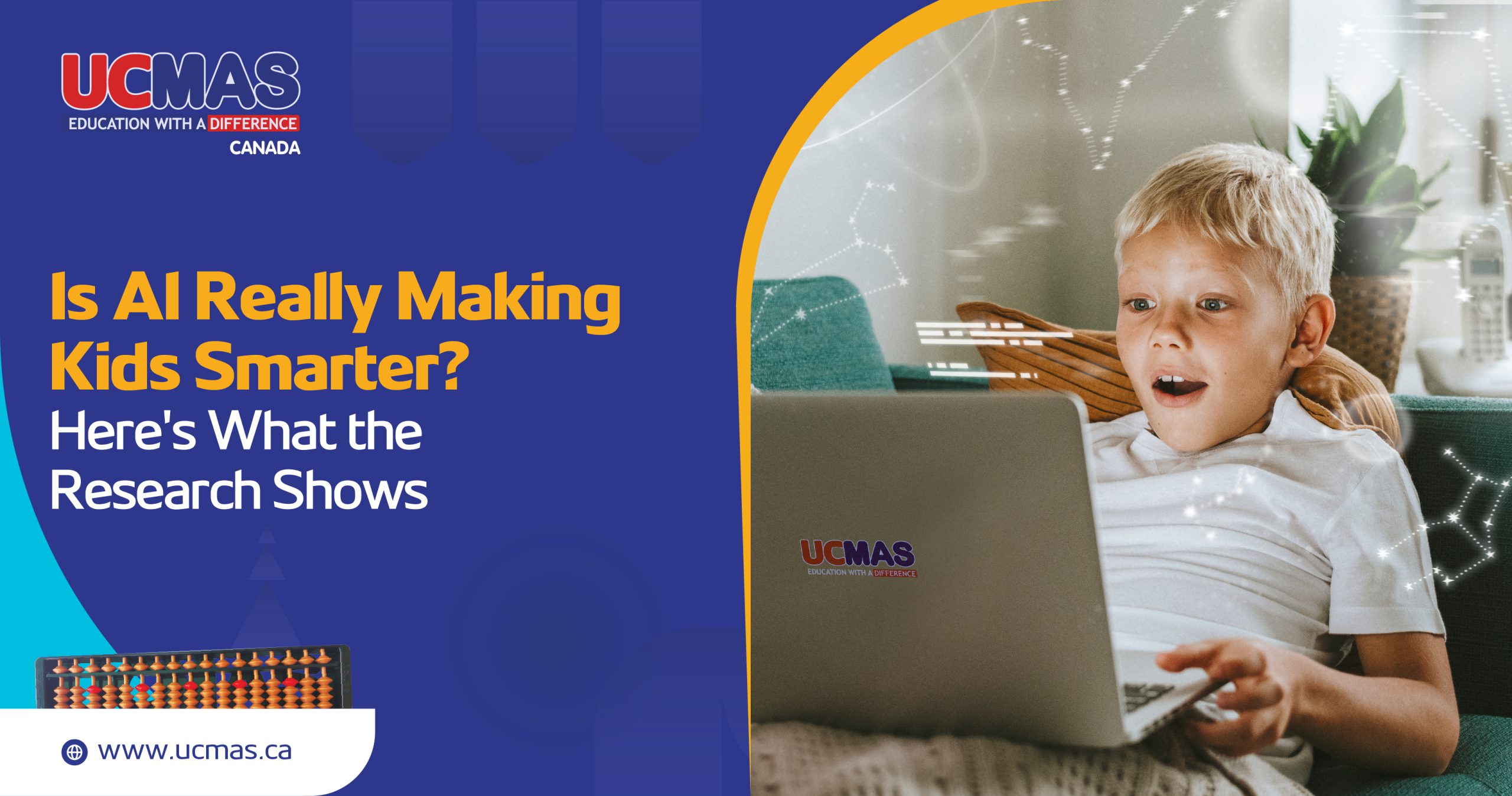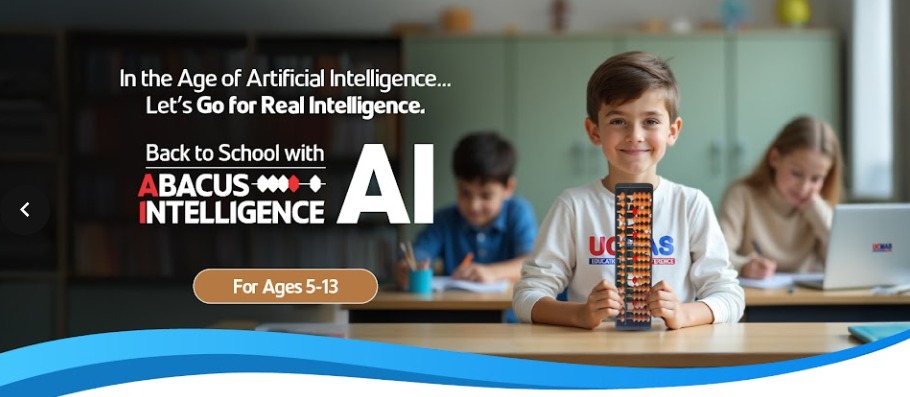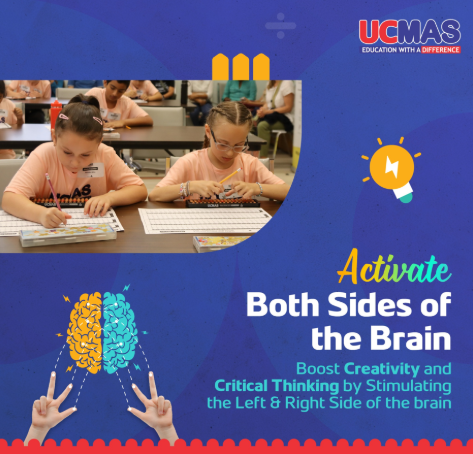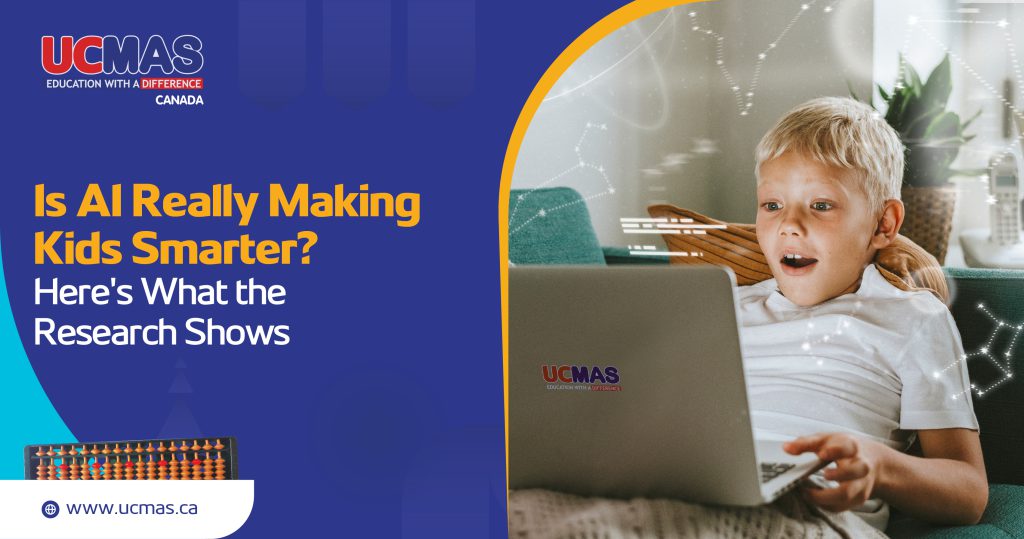
In recent months, multiple high-profile studies have sounded the alarm: young people’s critical thinking, logical reasoning, and memory are declining in tandem with increased AI usage.
Yes, we are entering the era of digital amnesia. A recent study by MIT Media Lab, which was conducted on 54 individuals, aged between 18 and 39 years, suggests that those using ChatGPT to write SAT‑style essays exhibited significantly lower brain activity, weaker executive control, and reduced attention spans.
But do you know who are the ones most at risk? It’s the children growing up with technology at their fingertips — and while that comes with incredible benefits, it also brings some very real concerns.
So, it is important that we as parents ask ourselves – How can we protect our child’s intelligence in this world of thinking machines
This blog will help you delve deeper into the paradox of intelligence and provide practical advice for parents, enabling them to foster genuine intelligence in their children.

The Paradox of Progress – Are We Outsourcing Our Thinking?
Let’s be honest—AI tools have made our lives incredibly efficient. From writing emails to solving complex equations, they’re reshaping how we learn and work. But this convenience often comes at a hidden cost: the erosion of active engagement with information.
When we no longer wrestle with ideas, solve problems manually, or reflect deeply, we risk becoming passive consumers of machine output. That’s not progress – it’s intellectual stagnation dressed in innovation.
Such scenarios often lead to the Rise of ‘Cognitive Offloading’ and “Digital Amnesia.” The term cognitive offloading refers to our growing habit of relying on external aids—such as calculators, reminders, and now AI—to process, store, and retrieve information.
Studies from MDPI have found a strong negative correlation between the use of AI tools and critical thinking performance. Participants who frequently relied on AI for answers showed significantly lower memory retention and reasoning abilities.
This offloading creates what experts are now calling digital amnesia—a state where we can’t recall what we just learned or created because we never fully processed it to begin with.
Children today are increasingly dependent on tools like ChatGPT, Grammarly, and automated math solvers, and are less inclined to try to solve problems manually. They skip the struggle that leads to learning. Over time, this fosters a dependency that weakens their problem-solving muscles and stunts intellectual resilience.
Redefining AI: Abacus Intelligence Over Artificial Intelligence
If artificial intelligence is making our kids think less, then maybe it’s time we introduce them to another kind of AI — one that actually builds the brain rather than replacing it.
Welcome to Abacus Intelligence — a new-age take on an ancient tool that helps children build real, lasting intelligence. It’s not just about doing fast mental math. Abacus learning, especially through programs like UCMAS, enhances focus, memory, creativity, and logical thinking – everything artificial intelligence tends to dull when overused.

What Is Real Intelligence, Anyway?
Real Intelligence isn’t about memorizing facts or scoring high on a test. It’s the ability to focus, reason, calculate, and make decisions. It’s the kind of intelligence that helps kids navigate real-world problems, manage emotions, and think independently.
In short, it’s the intelligence that AI can never replace.
In kids, real intelligence looks like this:
- Taking time to solve a puzzle without giving up
- Breaking down a math problem step by step
- Asking “why” instead of accepting surface-level answers
- Making mistakes — and learning from them
These are not just academic skills; they are life skills. And the foundation for these starts in early childhood – not with a screen, but with the right kind of stimulation.
“Don’t let AI replace their ability to think, reason, and remember. Discover how UCMAS Abacus Intelligence builds real intelligence for life. Learn More About Abacus Intelligence”
The Tech Dependence Challenge
Children today are digital natives. That’s a fact. But constant exposure to devices and digital learning platforms is making our kids lazy and transforming the way their brains function. Studies have shown that excessive screen time can impact attention spans, memory, and emotional regulation in children.
Many students can Google the answer to any question, but struggle when asked to explain their reasoning. This reliance on tech for basic problem-solving is concerning — and it’s a trend that’s only growing.
Why UCMAS Abacus Intelligence Is the Answer
Unlike passive learning tools, the abacus demands active participation from both the left and right brain. Kids don’t just memorize formulas — they visualize numbers, mentally manipulate beads, and strengthen their working memory.
Programs like UCMAS help children:
- Sharpen concentration by training them to block out distractions
- Enhance visual memory through number visualization
- Boost logical thinking by mentally calculating complex problems
- Develop self-confidence by mastering difficult tasks on their own
This isn’t tutoring. This is cognitive training. And it builds the kind of brainpower that sticks — no login required.
UCMAS Abacus Intelligence-Brain Development Program for Kids
The Future Belongs to Children Who Can Think
As we move deeper into the age of AI, one thing is becoming increasingly clear: the future won’t be owned by those who simply use technology — it will belong to those who can think beyond it.
Emerging fields like artificial intelligence, robotics, and data science aren’t just about knowing how to operate machines. They demand something deeper: critical thinking, logical reasoning, and the ability to connect complex ideas. And these aren’t skills that can be downloaded — they need to be nurtured from a young age.
That’s where the UCMAS abacus intelligence comes in.
While it may seem like a simple tool, abacus training builds real intellectual stamina. Every bead movement demands focus. Every calculation requires visualization. Every mental step trains the brain to work faster, sharper, and more independently. Over time, this repeated training translates into enhanced problem-solving abilities, decision-making skills, and creative reasoning — the very foundation of future-ready intelligence.
Think about it this way: today’s children will grow up in a world filled with machines that can solve problems in seconds. But what those machines can’t do is ask the right questions, think ethically, or reason through uncertainty. Those are human abilities — and they must be trained like muscles.
UCMAS doesn’t just teach kids how to calculate. It teaches them how to think.

Because the future won’t be about how fast you can Google an answer. It will be about what you do with the answer once you have it.
Give Your Child an Edge That Algorithms Can’t Replicate
Artificial Intelligence is not going away. In fact, it will only become more present in our children’s lives. But that’s exactly why we must strengthen what makes them human: their ability to think critically, concentrate deeply, and solve problems independently.
Real Intelligence matters now more than ever. And with UCMAS and Abacus Intelligence, you can help your child build it.






